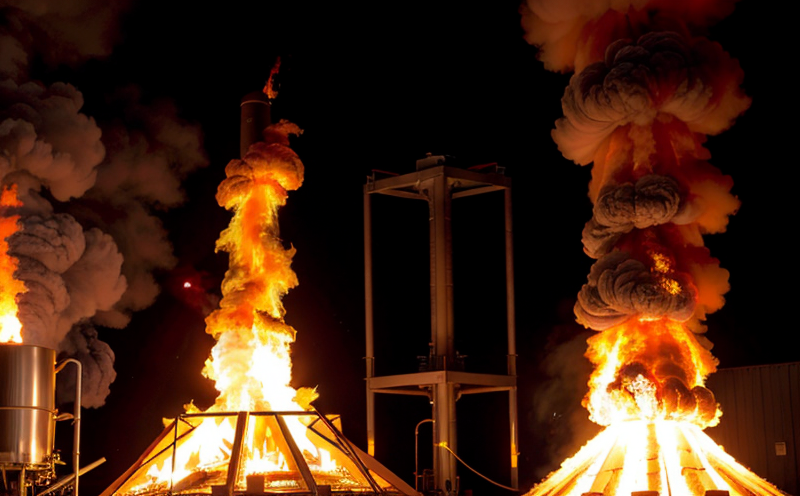Fertilizer Chemical Safety Testing
Chemical safety testing of fertilizers is a critical aspect in ensuring that agricultural inputs meet stringent environmental and regulatory standards. The purpose of this service is to evaluate the chemical composition, stability, and potential hazards associated with fertilizers, thereby safeguarding both human health and the environment.
The process involves rigorous laboratory analysis using advanced analytical techniques such as gas chromatography, high-performance liquid chromatography, Fourier transform infrared spectroscopy (FTIR), and inductively coupled plasma mass spectrometry (ICP-MS). These methods are employed to identify potentially harmful components like heavy metals, nitrates, phosphates, and other additives that may pose risks if used improperly.
Our team of experts follows internationally recognized standards such as ISO 17025 for quality assurance, ensuring accurate and reliable results. Compliance with these guidelines is essential not only to meet regulatory requirements but also to build trust among consumers who rely on safe and effective fertilizers for sustainable farming practices.
The testing procedure begins with thorough sample preparation which includes grinding, sieving, and homogenization of raw materials into a consistent particle size suitable for analysis. Once prepared, the samples undergo various analyses aimed at identifying key constituents along with any contaminants present in their respective concentrations. This comprehensive approach allows us to provide detailed reports that cover all relevant aspects including physical properties, chemical makeup, and potential safety issues.
A significant challenge in fertilizer testing lies in balancing efficacy against risk management. Our laboratory specializes in addressing this balance by offering tailored solutions designed specifically for different types of fertilizers—whether they are nitrogen-based, phosphorus-rich, or potassium-enhanced products. By understanding the unique characteristics of each type, we can develop precise protocols that highlight both beneficial elements and potential dangers.
To summarize, fertilizer chemical safety testing plays a crucial role in promoting responsible agricultural practices by minimizing environmental impacts while maximizing crop yields. Through meticulous analysis supported by state-of-the-art technology and adherence to global best practices, our laboratory ensures accurate identification of hazardous substances within fertilizers, thus contributing towards safer food production processes.
Scope and Methodology
The scope of fertilizer chemical safety testing encompasses a wide range of parameters aimed at assessing the overall quality and potential risks associated with agricultural inputs. Key areas covered include:
- Analyzing heavy metal content to ensure compliance with specified limits set forth by regulatory bodies.
- Identifying residual pesticides or herbicides that might persist after application.
- Evaluating nutrient levels (nitrogen, phosphorus, potassium) against recommended ranges for optimal plant growth without excess build-up in soil.
- Detecting any unintended byproducts formed during manufacturing processes which could be detrimental to ecosystems if released into water bodies.
Methodologies used vary depending on the type of fertilizer being tested and its intended use. For instance, solid fertilizers may require different handling procedures compared to liquid forms due to differences in physical properties such as density or viscosity. In all cases, however, strict adherence to standard operating procedures (SOPs) is paramount to achieving consistent results.
Our laboratory uses sophisticated instrumentation tailored specifically for each type of analysis required during the testing process. Gas chromatography-mass spectrometry (GC-MS), for example, provides detailed information about volatile organic compounds present in fertilizers, while atomic absorption spectroscopy (AAS) helps measure trace elements at extremely low concentrations.
Once all necessary analyses have been completed, our team reviews the data meticulously before compiling final reports. These comprehensive documents include detailed descriptions of findings along with recommendations for improvement where applicable. They serve as valuable tools not only for regulatory compliance but also for guiding future research and development efforts aimed at producing even safer and more effective fertilizers.
Benefits
Fertilizer chemical safety testing offers numerous advantages to stakeholders involved in the agricultural sector, including quality managers, compliance officers, R&D engineers, and procurement teams. Some key benefits include:
- Enhanced Safety: By identifying hazardous components early on, potential risks can be mitigated, protecting both workers handling fertilizers and end-users.
- Better Compliance: Ensures that products meet strict regulatory standards, avoiding costly penalties or recalls later down the line.
- Informed Decision-Making: Provides valuable insights into product performance and areas for improvement based on scientific evidence rather than assumptions.
- Improved Reputation: Demonstrates commitment to responsible stewardship of resources, enhancing brand image among customers and stakeholders alike.
- Cost Efficiency: Early detection of issues allows for corrective actions before they become major problems, saving time and money in the long run.
- Sustainable Practices: Encourages sustainable farming techniques by providing data-driven recommendations that promote balanced nutrient management without causing harm to natural environments.
In summary, fertilizer chemical safety testing is an indispensable tool for maintaining high standards of agricultural input quality. It empowers decision-makers with actionable intelligence while fostering a culture of continuous improvement across the entire supply chain.
Industry Applications
Fertilizer chemical safety testing finds application in various sectors within the agricultural industry, each benefiting from its unique capabilities:
- Manufacturers: Helps identify impurities or unintended byproducts during production processes.
- R&D Departments: Supports innovation through rigorous evaluation of new formulations and their environmental impacts.
- Sales Teams: Enables accurate claims about product efficacy backed up by scientific evidence, boosting sales confidence among customers.
- Regulatory Bodies: Provides unbiased third-party validation necessary for certification purposes.
- Supply Chain Partners: Ensures consistent quality across all stages of distribution, reducing variability and improving reliability.
Our laboratory works closely with these diverse groups to understand their specific needs and tailor our services accordingly. Whether it's ensuring compliance with local regulations or developing safer alternatives for future generations, we are committed to delivering reliable results that drive positive change in the agricultural sector.





